Do You Truly Need Life Experience to Write Well?
On the second episode of Dear Writer, we explore the question, ‘Do you truly need life experience to write well?’
The approach we took to this was primarily geared towards young writers vs older writers. We delve into our memories of writing as teens, making comparisons and applying knowledge we’ve learned on the way to answer the question.
And stay tuned to listen to our ‘mistakes of the month,’ where we divulge some of our weird and wonderful mistakes to listeners.
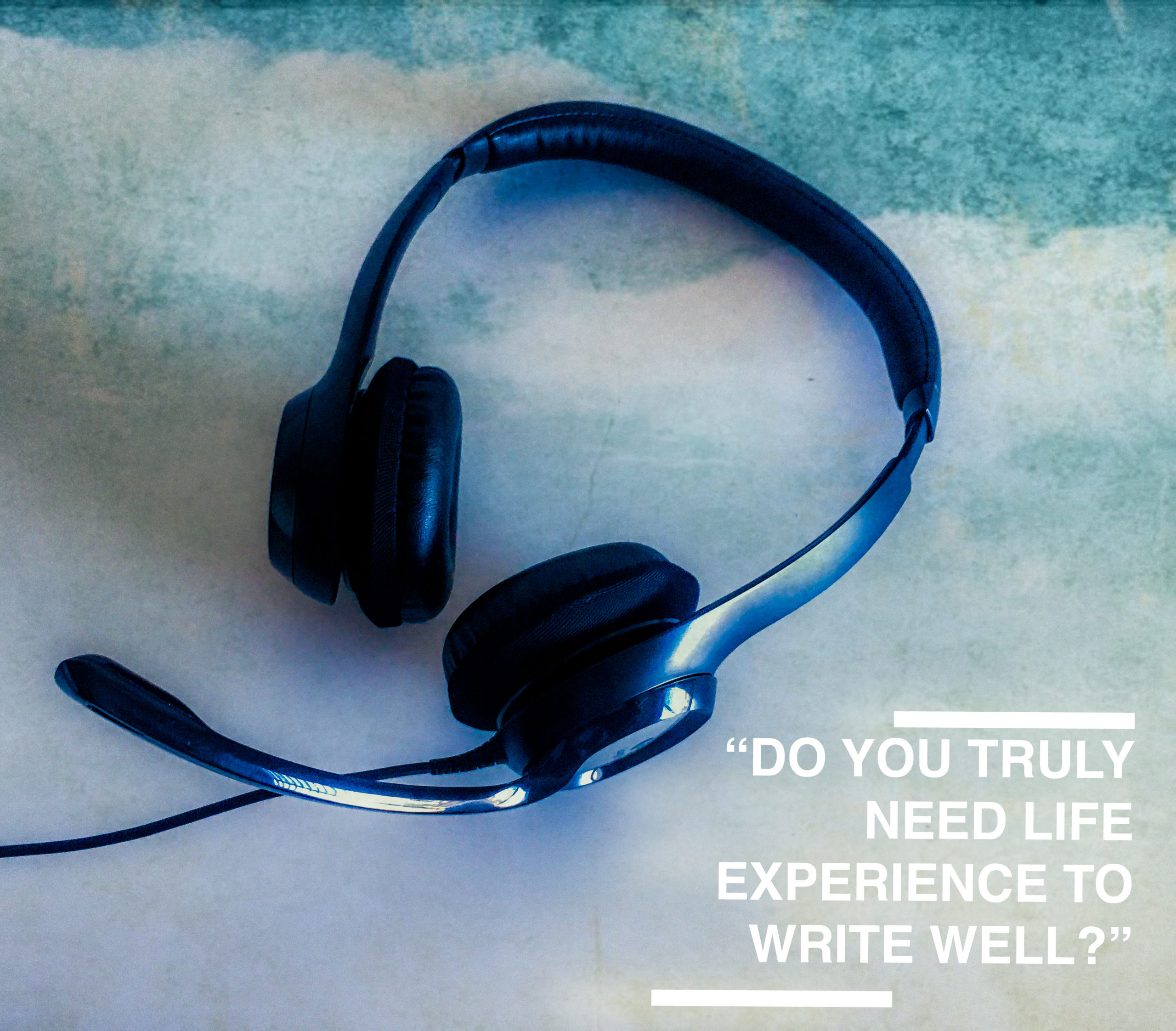
Transcript
[Intro]
Sarah: So, hi everyone. It’s a beautiful sunny afternoon in Calgary today…
Ashley: It’s not sunny here. I’m actually in Tauranga today, it’s pouring with rain, and it’s freezing cold…
Sarah: It was looking thunderstormy here… but let’s not do a whole weather thing. So, how’s your writing been going, Ashley?
Ashley: It wasn’t great, but it’s been a lot better, last week. I’ve been rewriting a lot of The Price of Pandemonium, which if you guys follow our blog, you might know is the second book in our series. We had a lot of comments from beta writers—ah beta readers, sorry—and the like. So we’ve been trying to accommodate most of their suggestions, which has resulted in lots of new sections in the book, which is sometimes hard to fit in. And it’s a bit slow as well… you’re tryna like fit new sections into already existing sections, and then make it flow. But, last week, I finally finished, so that was a great, great moment for me.
Sarah: [In background] Yes!
Ashley: And now Sarah has it, so it’s all up to her.
Sarah: [Sighs] It should be less of a challenge, I think, now.
Ashley: I think so too. A lot of the hard bits done.
Sarah: [Laughing] What was probably the hardest bit for you, do you think, in the edits you’ve just done?
Ashley: Probably actually the start? I had to rewrite the whole start, which… it was good because it’s almost a clean slate, so I could write whatever I wanted. But then the follow-on effects of changing the entire beginning resulted in quite a lot of finicky changing for like ten to twelve chapters after changing the start. So it was probably the hardest bit, I think.
Sarah: Cool.
Ashley: What about you? How’s your writing been going?
Sarah: Well, I also finished the third book that we’ve been editing, which is Darkness, Set Us Free, again if you follow our blog. It started off quite difficult, the editing, but it did get easier…
Ashley: It was our first edit through this book after we completed it during lockdown, right?
Sarah: Yes, so that did make it quite challenging to begin with, but then, as I said, you know it started flowing a bit more, and then it was just tidying little bits and pieces and finding those inconsistencies. Yeah, so I think I finished that a few days after Ashley finished, so we now have swapped them, and it seems to be quite good timing really, considering they each had their own issues to work through!
Ashley: Yes! I’m really excited to read through Darkness, Set Us Free now. I haven’t actually read the entire manuscript from start to finish, I’ve only read it in individual chapters, sort of all… not exactly in order, because we didn’t write them all sequentially. So, I’m quite excited to see how the whole thing’s come together after Sarah’s been through it. Should be really, really good.
Sarah: It’s quite a journey.
Both: [Laughs]
Sarah: I will say that.
Ashley: An emotional journey for the characters and a physical journey.
Sarah: Very emotional! So I think, at this point, we will move onto our main discussion, which is looking at the question: Do you truly need life experience to write well?
Ashley: Heavy topic.
Sarah: Yes.
Ashley: A lot of things that we can talk about. The first thing I thought about, when Sarah posed this question and we were talking about doing this podcast, was about developing characters that seem realistic. I don’t know how you all have found this, but personally, I find that the characters Sarah and I created when we were teenagers are very… are more one dimensional than they are now. There’s the funny one, the sad one, the fighting one, the normal one, and like, the weird one. Which are fine, but there’s no real depth to them. So I think, getting older, and meeting other people and learning more about people in general, and how they work, has helped us develop characters that are at least slightly more complex than they used to be. I don’t know what you think about that Sarah?
Sarah: I do think that, like certainly when you look at our first attempt at the novel, when we would have been sort of fourteen/fifteen, that is quite a bit different from our current attempt. And I think, teenagers tend to be a little bit dramatic sometimes? And I’m not saying that in a bad way at all, because it does—as we’ll discuss—come with its good points as well, um but when you read some of our writing, it’s almost to the point where it’s absurd because everything’s all or nothing. Like die or… [laughs]. And they do these crazy stunts, which is great, but I think you need to learn how to temper that in your writing. I think teenagers are learning how to sort of… interpreting writing, I think they do it quite well, but then, I know that when I look back at what we’ve written, it seems to be quite… explosive… I want to say? [Laughs].
Ashley: That…that makes sense. It’s like the extremes of their emotions. There’s nothing sort of in between. It’s either, “I’m so terrified, I can’t move, I’m gonna like stand in the corner while soldiers kill everyone else.” Or “I’m the massive hero, and I can like, go around, I can shoot everyone, I don’t feel anything afterwards.”
Sarah: And you know, I think there are people out there…everyone’s at a different stage of development, right? And not every teenager is gonna do that in their writing, and maybe it’s that we couldn’t work out how to get our thoughts onto paper, quite. And so we ended up overdramatizing everything. Um… [laughs].
Ashley: So I was just thinking about some of the scenes that used to be in that book and it makes me laugh.
Sarah: So, just so everyone’s aware. There is a scene, I think it’s probably the second chapter, maybe, where they literally climb up onto the roof rafters and then they decide they’ve got to kill a soldier—it’s no longer in the book so I can tell you all of this without giving anything away—they decide they’ve got to kill the soldiers before they come up to them. And, to do that, one of our characters gets the other to hold her legs, grabs a board with nails on it…
Ashley: [Laughing] I’m not sure where this is going…
Sarah: … Swings under, and hits the soldier with the board, and the nails, just as he comes up the rafter to get them. [Laughs].
Ashley: It’s so ridiculous!
Sarah: And while this is AMAZING to read—I’m really glad we kept the original one…
Ashley: Yeah.
Sarah: …I would say it’s probably not realistic.
Both: [Laughs].
Sarah: But, as people may or may not know, in my other life, where I’m not writing, I am a nurse, and in fact, at the moment I’m currently studying a topic on childhood development including adolescent development as well, so it’s quite interesting to see where the majority of teenagers are at in their development, and what…sort of drawing comparisons to how we used to write versus how we write now. What it talks about… children have what they call ‘magical thinking’. Which isn’t you know, they expect everything to appear out of nowhere or some magic trick. But what it is, is that if they’ve done something wrong, then sometimes they can think that they’re being punished for something that they’ve done. Because they think on more of like a concrete scale, which might not make a whole lot of sense, but basically they see in concrete forms, but then they also have like, a whole heap of imagination. So what they don’t understand and they don’t know, they make up links for. And you still get the remnants of that in adolescence. And so I think that does partly contribute to how we used to write…if that makes any sense.
Ashley: Yes it does make sense. It’s actually quite interesting, that we’re sort of able to see evidence of our own, I guess, mental development from teenagers into adults just by reading our work.
Sarah: Yes.
Ashley: It’s quite interesting, in comparing it.
Sarah: I’m gonna go on the other side of things. So, the interesting part about this question ‘Do you need life experience to write well?’ is that, what we’ve been talking about is typically what everyone’s first reaction is, is that: No. You must have life experience. You must know people, you must go out there and you must do stuff. And there’s always that… sort of that quote that gets thrown around in the writing world of ‘Write what you know’. Which, to be honest, I think is a little bit ridiculous, because otherwise we wouldn’t even have sci-fi [laughs].
Ashley: Very good point!
Sarah: So, you know, there is that side of it, and I think when you’re younger as well, you tend to be more imaginative, and you don’t immediately close off any idea, because that in a young person’s mind, that idea could work. Whereas in an adult mind it can kind of work against you, in a way that you’re kind of boxing things in, because you don’t think its realistic. And what do you think about that, Ashley?
Ashley: I tend to agree. I think a lot of things that we put into our book, as teenagers, they’ve actually stayed because they’re incredible. They’re so… ah they’re so out of the box and ridiculous. They have been toned down a little bit, and made slightly… I think more the characters have been made more realistic so it feels… their reactions to these things are a bit more realistic and relatable. But, I do think that a lot of the stuff in our books wouldn’t be as good if we had just dismissed them outright. I do think though that there’s maybe something to be said about some of the things being…less predictable when you’re older. I think you can come up with a great idea as a teenager that works really well, but often the result of it is predictable. Like, “Oh no, this massive thing happened, and oh look, they killed all the soldiers, wow that’s so amazing.” Whereas as an adult, you’re able to sort of make these plot points and things that happen a little less predictable to the reader. I think that might be sort of the difference. Maybe.
Sarah: I kind of think… I mean… I can see where you’re coming from, because you do sort of have to know how a plot is gonna work in a way to keep the readers interested, and then, to still wind all the points up. But then I would say that in some ways I think it’s the opposite, for me, that I think it’s almost less predictable because they come up with these insane ideas! So you get these crazy plot twists. In our first book for example, you know I really don’t think we would have come up with those ideas otherwise, so… I think there’s that to it. But, you know, I think manipulating the plot and making it…
Ashley: [sees Sarah struggling to find word] …intricate?
Sarah: Yeah, yeah, you know. And just finding something that’s going to wow everyone…you get that a little more with experience of knowing… like you know, you watch a movie for example, and then, you get to the end, and even if there’s been a plot twist, you kind of look at it and you say, “well, I don’t it could have happened any other way.” And I think that’s the trick of good writing, is…
Ashley: [Background] Mmhmm.
Sarah: …making it so that readers can’t predict what’s gonna happen, but having them get to the end and realize that there couldn’t have been any other way that things could have gone down. In our earlier writing, we weren’t so good at that second part. Like yeah, we could write a plot twist that was totally insane, but then we couldn’t bring that back so the readers go “wow you know like, there’s no other way that would’ve worked.”
Ashley: Like the plot twist wasn’t actually crucial, to the plot, kind of going forward.
Sarah: Yes, yeah.
Ashley: That makes sense. So do you think that because of the way you write as a younger writer, do you think it tends to be more suited towards readers of the same age? Do you think that you can with a teenage mind for adult readers? Or vice versa? Or young adults writing for older adults? What do you reckon?
Sarah: I think it becomes hard, going back to the nursing perspective, and again, I might ruffle a few feathers with this [laughs]. From a nursing perspective an adolescent is still trying to find their identity, and they call it ‘a return to egocentrism’. And that egocentric nature, means it’s harder to put themselves out of where they are to get into that adult frame of mind. But then, on the other hand, because that they’re learning about themselves, and they’re tryna find out what their beliefs are, they’re tryna find out their values are, and what means something to them and what matters to them, they are possibly better suited in some respects for getting to the heart of some issues, because they’re still…
Ashley: Trying to find…find themselves.
Sarah: Yeah, yeah. And adults have worked all that out and they’ve gone through that. And some adults forget it…
Ashley: [laughs]
Sarah: Some keep it [laughs]. And you know some never get to that self-identifying phase at all! So you know, it does depend on the individual, too.
Ashley: I think it would definitely be easier to write for an age group younger than you. Just because, you’ve been there, you know the mindset, and you’ve probably also read a lot of that work. So you can write up to that level. I don’t know about writing older. I just don’t know. I don’t know if I could… could I convincingly write a story about older people? I don’t know. I don’t know if I’d have the right mentality. I don’t know. It’s a very interesting question.
Sarah: It is an interesting question. And, for me, I think it would be tricky. For sure. But I don’t think it would be impossible.
Ashley: I think it might be hard if the older character was my main character. I feel like I could do it if they’re like a supporting character, where if I am not 100% accurate on their mindset or what not it doesn’t matter as much. But I don’t know if I could convincingly do one for an entire novel, I don’t know.
Sarah: It’s interesting. So then it brings into question points of view, right? Could you do it in third person, but then not first person? [Laughs].
Ashley: Well that’s a good point, because we write all our books in first person. So, that might be part of the reason I’m questioning it.
Sarah: Well, the one we’re about to attempt next is third person, which is an interesting change.
Ashley: It will be an interesting change. And no more teenagers, either, so.
Sarah: I think though, it comes down to, as well, what I said before is that, I mean, on the one hand as an adolescent you have…you’re exploring all these issues. And sometimes, when you’re an adult, it closes you off to the other person’s viewpoint, because you’re kind of stuck in your own… like you’ve already developed your own set of values, your own beliefs, and you’re like “no. You can’t tell me that because that’s not what I believe.” No… but I think that knowing yourself as well means that if you have a defined reference of your frame of mind and your beliefs, that you can easier step out of that and differentiate your character versus yourself. Which I think would make that easier to do? Possibly, writing older? I’m not entirely sure, I’ve never tried it!
Ashley: I know for… I think—I don’t know for you, but definitely for me—as a teenager writing I could not convincingly have pulled off adult fiction. There’s absolutely no way.
Sarah: No. I don’t think I could have either. I’m not sure if it’s possible or not. I know that personally, I couldn’t have done it.
Ashley: I could not have done it.
Sarah: But it’s an interesting thought.
Ashley: I think, hopefully, I’m sure some of you guys listening are definitely better writers than we were. So, this could be totally different for you. You guys could be absolutely 100% confident in pulling off adult fiction, and good on you. Because that’s a real feat, I think.
Sarah: Yeah. I always remember the likes of—I probably am going to say his name absolutely awfully, but—Christopher Paolini? Who wrote the Eragon series.
Ashley: Oh, yeah, yeah, yeah.
Sarah: I was always amazed! He wrote that when he was sixteen, right? Which, to me is mind-blowing, because it was a really good book. At least, as I remember it being. And it must have been, because it got made into a movie, so it can’t have been that terrible.
Ashley: I’ve never read them. James, my husband has read them though. And he, as a teenager, absolutely loved them as well.
Sarah: Yeah. They were very good.
Ashley: I’ve not looked back at them as an adult though. So…
Sarah: [In background] Yeah, me neither.
Ashley: …That could be interesting.
Sarah: I just know as a teenager I was totally enthralled.
Ashley: Who doesn’t love dragons? Come on!
Sarah: I know, right? He wrote like, a set of three of them and each of the books were hugely…
Both: …MASSIVE.
Ashley: Massive books! It’s impressive they were just that long!
Sarah: He must have made his fortune…
Ashley: Yeah.
Sarah: …through those series very early in his life. It’s quite impressive.
Ashley: It is impressive.
Sarah: For most of us, you know, we struggle on… [laughs].
Ashley: Still struggle on, as adults. Better though. Definitely better writers than we were. I can confidently say that.
Sarah: Yes. So, do you have anything else to add to this discussion, Ashley?
Ashley: Um… Well on what I literally just said, I think you definitely, with practice, naturally get better anyways.
Sarah: Yes.
Ashley: So, I think, even if as a teenager, your writing’s not great, or even if it is great, you’re just going to get better with more practice. And learning how to do different plot mechanics, and making good characters, and dialogue… So I think regardless, it’s hard to talk about whether you can write well as a young person. Because I think you’re always going to be able to write better as you get older.
Sarah: Yeah. That’s the aim!
Ashley: So…
Sarah: Yeah and I would agree with that, you know. You’re always pushing yourself to be better, and I’m sure that great writers would agree with that.
Ashley: I’d hope so.
Sarah: You know, you never wanna be worse with your next work! So, if you’re great when you start out, well, good on you, you’re going to find it harder to top it! [laughs]
Ashley: I even notice it from like writing recently, over the past I don’t know, eighteen months, or however long we’ve been writing again, from book to book.
Sarah: Oh, yes.
Ashley: Our writing gets better and better and better. So I’ll finish a book and then I’ll go back and be like “no! I feel like I need to rewrite all of this again” like, “I’m so much better than I was three months ago!” [sighs dramatically]. It’s getting there though. We’re getting to a point where I think the gains we make as writers are not as pronounced anymore. So, when I look back now, it all seems good, so it’s OK.
Sarah: Yeah. I would say that. Because, you know, when we first started doing this [again] we weren’t even writing chapter after chapter. We were sort of editing previous writing that we’d done. And so, editing Darkness, Set Us Free for me, was like, I had all the tools in the belt now. I didn’t have to work out: What, should I be deleting attributions? Should I be… um. I had already kind of worked through that process through editing the last book. So it was a lot easier and I had a process to follow rather than last time when I just looked at it and I was like, “All right. Where do I start?”
Ashley: You’re like, “this chapter’s terrible, we’ll start here.” And then you fix it, and it becomes great, and you’re reading through it and you’re like “Aw… that chapter that was good before? Um, it’s now the weak point.”
Sarah: [laughing] Yeah!
Ashley: Rewrite that one!
Sarah: If you ever look at our blog, we do the edits, and then you get to the next blog several months later and it’s like, “I’m now editing it AGAIN!” Which, yeah. You know it never ends. So I think what we’ll do now is move on to our next section, ‘Mistakes of the Month’. Would you think it’s time for that, Ashley?
Ashley: Yes! I’m very excited about this.
Sarah: So, I had this idea, because I thought, you know, as we’re developing as writers, you know, you come across the most ridiculous mistakes in your writing. And a lot of people don’t get to see them when you’re reading, right? Like, you come across these polished works and it’s like, how the heck am I ever gonna be that great? So I thought, what we’ll do is every month we’ll share some of the mistakes that we’ve come across. It’s a little bit geekish, so sorry in advance [laughs], but these are the things that give us laughs as we’re editing, and as we’re writing.
Ashley: Yes.
Sarah: Do you want to start, Ashley?
Ashley: Sure. So I was going through… actually I was rewriting a section in The Price of Pandemonium, and I went back to read over it, and I was like yeah, this is really good, and I’m reading through, and it was flowing really well. It features one of our characters, Lizzie. She can be a bit feisty, and so this is a moment where she’s meant to be being feisty, and she’s meant to be talking about how she hides the ‘bitterness’ in her voice. Except I had mistyped it as ‘butterness’. So it came off as some sort of really weird… I don’t know. It had this weird sort of sexual element to it, and it wasn’t supposed to, and it was totally out of context, I was just laugh—I sat at my computer and I was like crying with laughter, I’m like oh my gosh. If I had left this in here, it would have actually ruined the entire piece, but I found it, and it’s great. It’s one of my favorites.
Sarah: Especially knowing Lizzie, you know, this character, as Ashley said she’s very feisty. But then, I think she’s a little bit flirty every now and then, too. So…
Ashley: Occasionally, yeah.
Sarah: I think it makes it funnier.
Ashley: It does!
Sarah: I also had an issue with Lizzie.
Ashley: [In background] Ah, Lizzie.
Sarah: So I got to this scene where she’s talking to this other character. And to start with, she jumps up onto the bench—the countertop—that she’s standing beside. And she’s talking to this character, and then, within the next few sentences, she’s suddenly looking up at the other character, and they go on to have this discussion and she is suddenly standing in front of him. And occasionally you come across these weird instances of magical teleportation acts. But, I had an issue with this. I mean, it wasn’t super hilarious, I kind of gave a little bit of a giggle, because read through and you’re like, “well that’s not really how it was intended, like that’s a strange image in my mind.” Especially because, what they were talking about and what they were doing in the scene kind of meant that if she stayed on the countertop it just wasn’t going to work. And so I’m imagining this happening with her on the countertop, and I’m like, no.
Ashley: You’re like it’s weird, it can’t happen this way.
Sarah: But I had like this really… I was very conflicted about it, because I quite liked the way she casually jumped up onto the counter. But then I couldn’t get her down off the counter in time for her to have the interaction with this other character, so in the end I gave up and just made her stand beside him, but… [laughs] For a little bit there I was just like, darn it!
Ashley: I love magic teleportation acts. They’re great.
Sarah: Jess did it once too, in The Price of Pandemonium.
Ashley: Did she?
Sarah: Took that out before you got a hold of it.
Ashley: [Laughing] That’s funny.
Sarah: We’ve had people go into cars and then come out, because there was so many of them, there were two cars, except when they got out the car, they were in different cars. Like, they did this magical swap.
Ashley: It’s obviously that someone’s edited it.
Sarah: I don’t think—I think it was just because it was between chapters. This is also a danger of writing collaboratively I would say.
Ashley: One of us was probably writing the other chapter. My favorite car incident that I found was the clown car in When the Rain Falls. So they’re riding in a taxi, and seven characters get out of the back. And I was like, maybe it’s a van? How are they all fitting in there? And then I was like, they’re not gonna have a van in wherever these characters are…there’s not going to be a van going down the street so it was just, I was like “oh dear”. There’s…it’s different now. It’s different now. But I didn’t catch that till really, really late. “We all jumped out of the cab.” And I’m like wait, what? There’s seven of you. Or six of you. How… how are you all getting out of the backseat?
Sarah: Seven of them. Plus the driver, presumably. Which would fit in like one of those vans, isn’t it like eight…is it eight seats or more or nine seats or more that it becomes a bus?
Ashley: Oh, I’m not sure.
Sarah: I think it might be nine or more seats you have to have like a bus license or something.
Ashley: Getting close.
Sarah: Do you have any other mistakes that you would like to mention in the month?
Ashley: Sure. So, we have another character in The Price of Pandemonium. His name is Knox, and he… I don’t really like him. And, it’s meant to…you’re not supposed to like him. Let’s put it that way, in the book. And for some inexplicable reason, when Knox is being particularly annoying, in a chapter, I have this tendency to call him Knoz. Like, K-N-O-Z. And I don’t know why I do it. And it’s come to the point where I’ll find Knoz written, like randomly, in other sections that I’ve like, edited and I’ve missed. And I was like, how am I writing Knoz? And even when I was writing the notes for this show, I also wrote… I can read you what it says. I wrote: Knoz versus Knoz. And then, I wrote: Oops, supposed to be Knox, I even did it while writing this sentence. Which is hilarious. I don’t know why I do it. And even when I try and purposefully write Knox, I also write Knoz. So, the number of times I found that mistake, I almost want to search it, just to make sure I got all of them.
Sarah: It’s like the solider/soldier mistake.
Ashley: Solider/Soldier, yes!
Sarah: Or shoulder/soldier. That one comes up a lot too. But you know what else you’ve done recently that I just came across?
Ashley: Oh no. What did I do?
Sarah: Tamzin and Tazmin. You started calling…
Ashley: Oh no!
Sarah: …Tamzin Tazmin. Which I can understand, because it kind of sounds like Jasmine, or like, Tasmania.
Ashley: It must… I know her name’s Tamzin, it might be a typing thing.
Sarah: Maybe, yeah.
Ashley: And then it looks the same? I don’t know, that’s hilarious.
Sarah: ‘S’all right, I fixed it all. I probably do stuff like that too. So, the other thing that I had was, occasionally you change like sentences on a really, sort of, minor level. You just change like one tiny thing and then it has implications like further on in the chapter. And one of them, was… one of our characters ripped off half his shirt to stop bleeding in a sort of minor character. And, because I know from experience like how stressed you get under that kind of pressure when someone’s like bleeding out, because I actually have you know, experienced that nursing, I was like “ngahh that’s not very…very realistic because it would probably just be easier for him to whip off his whole shirt. So, I did that, changed that, and then later on, I came up with this other sentence that said: “I remembered half my shirt was missing.” Which, is a hilarious sentence on its own, but then I had to change it to: “I remembered my shirt was missing.” And it just made it even more weird. But, I decided to leave it in there for now, because I was like, “well, it’s true! His shirt is missing!” [Sighs]. And, the one other thing I would mention was, I came across a sentence that said—I can’t remember the character’s name, it was another minor character, but—“Someone-so looked sideways at me.” And I don’t know if I was being too picky on this because, I’m not entirely sure on the rules… Like I feel like you can give someone a sideways look, but then you can’t look sideways at someone. Because then I get this vision, of this owl, with its head tilted on the side. And then I started thinking, “well maybe that’s why sidelong exists; the word.” And so now it’s a sidelong glance… but, yeah. These kind of things, when you’re editing, they just begin to drive you nuts. And after a while you can’t read anything without it being literal. So, yeah. That’s what I’ve got to say about that. You can maybe have a sideways look at someone, I’m not sure about whether you can look at someone sideways.
Ashley: Yeah, I don’t know. Unless they’re being sideways, maybe.
Sarah: Unless they’re like hanging off the wall. So, anything to add to this discussion, Ashley?
Ashley: Oh, I could add my… so, we have another character—I found a lot this month—another character Dylan. One of our characters, Dylan, it’s from his perspective and he’s meant to be talking about, “I said (something) to myself.” Except, I’d acci—some… well it was probably me—accidentally had put a space between my and self, and not only that, I had then missed out the s. So it ends up being, “I said to my elf.” Which was amazing! Because I was like oh my god yes! Dylan has an imaginary elf friend that he talks to randomly!
Sarah: Oh my lord!
Ashley: That one was really good. I found it, I was like cry…I had to go out and tell James. I was like “oh my god look at this mistake I just found! I said to my elf.”
Sarah: Ah. That’s funny.
Ashley: It was really good.
Sarah: I had a dream about an elf, once.
Ashley: [Laughing] What?
Sarah: Well actually, I think it was a dwarf. I accidentally, um, hit him. And they fell over and broke into pieces.
Ashley: Oh no!
Sarah: That was a long time ago.
Ashley: Like one of those little garden gnomes.
Sarah: It was when we were like, first writing. I’d get these really strange dreams from writing [our] series. Not that we have a dwarf in our series. Or an elf. But yeah. It was very strange. We were just walking from like class, because this was back when we were in high school.
Ashley: I like that you’ve remembered this dream. Clearly…
Sarah: The weird ones stick with you! I actually started a dream diary, because that the funny ones are just too hilarious. And when I was… before getting married I had all these weird marriage dreams. So, I put them down in a diary. But yeah, anyways [clears throat]. Getting off topic as per usual.
Ashley: Yes.
Sarah: I think we should probably wrap this up.
Ashley: Yep.
Sarah: Yeah, so… next time, on Dear Writer, we are going to be exploring the question: Is there such a thing as too much research?
Ashley: It’s going to be very interesting.
Sarah: Yes.
Ashley: I have a lot to say. I am a researcher by, you know, trade, so…
Sarah: The ironic thing is I might need to do some research.
Ashley: Me too!
Sarah: About whether you can do too much research. I kind of have my ideas on it, but I think it might need a bit more substance behind it. Yeah. I’d like to sort of try and work out everyone else thoughts as well and we can have a chat about it.
Ashley: Should be really good. Anyhow I hope you all enjoyed today’s podcast. If you want to know more about us, or our writing projects, we have a blog. You can visit us at lindersoncreations.com, we also have a bunch of social media. We have Facebook, Instagram, I think both under lindersoncreations.
Sarah: Yep.
Ashley: So, reach out! Let us know what you think! If you have any questions, or maybe you have a mistake of the month you want to share.
Sarah: Yes! We would love to hear other people’s mistakes, rather than laughing at our own ALL the time! You know you can do it anonymously, no one’s judging here.
Ashley: Nope, safe space!
Sarah: Yes. We’re totally happy to have a chat with people about their works, and, if you wanna reach out to us, feel free to get a hold of us on our website at lindersoncreations.com, under the ‘contact us’ section. It’ll go straight to our email and we check it very regularly. So yeah.
Ashley: Until next time!
Sarah: Yes!
Ashley: Happy writing, everyone.









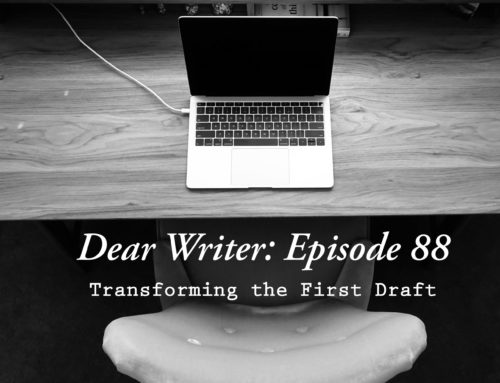
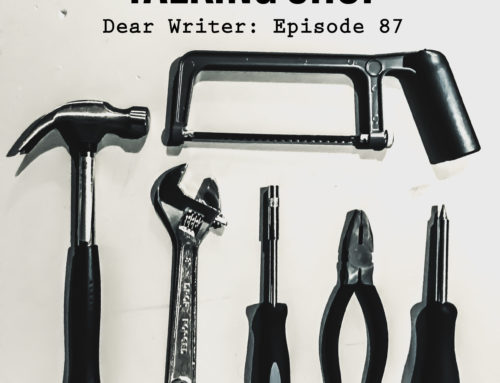

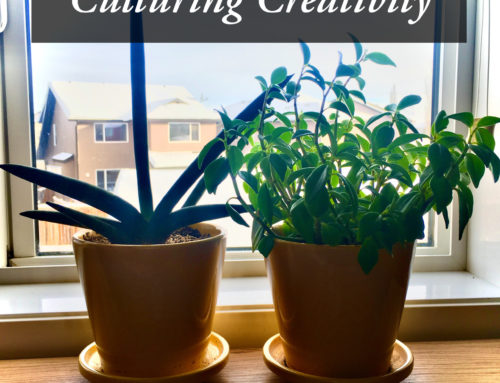

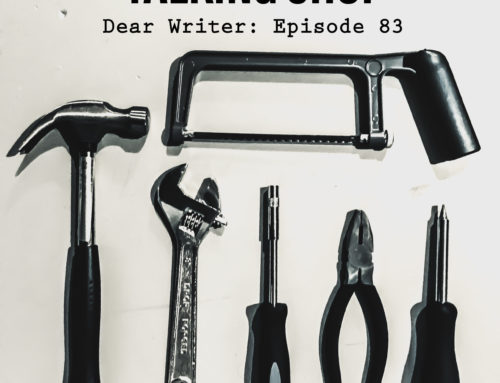


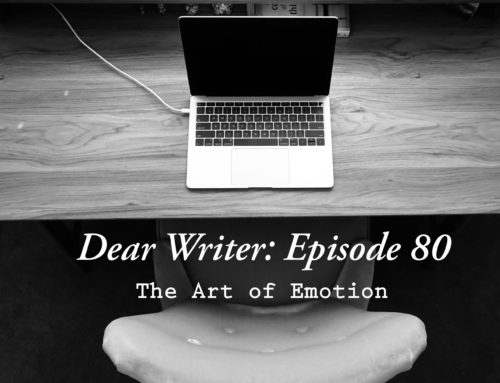
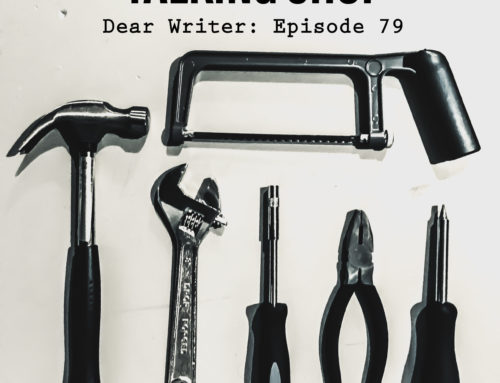
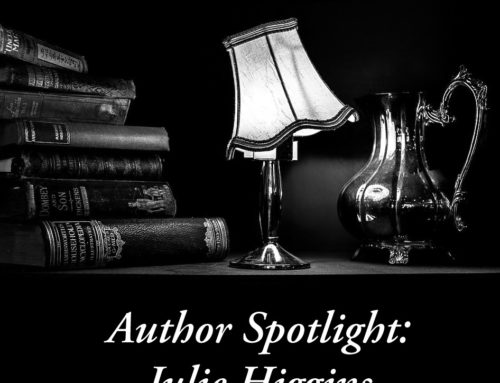
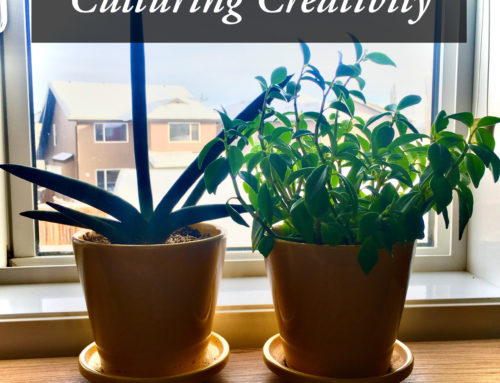
Leave A Comment